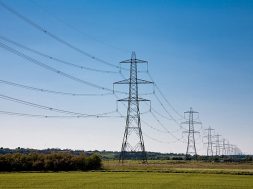
New report sets out key steps to unlocking at least 5 gigawatts of green hydrogen: RenewableUK – EQ Mag Pro
RenewableUK has published a series of key policy recommendations in a new report to help the Government achieve its target of 10GW of low carbon hydrogen by 2030, including at least 5GW from green hydrogen production.
This will boost the UK’s energy security by replacing expensive imported gas with a clean home-grown energy source, and allow us to make the most of the vast quantities of electricity we are generating from renewables.
Green hydrogen can be produced in electrolysers which split water into hydrogen and oxygen using electricity generated by wind and other renewables. It can play a major role in keeping the grid balanced at all times, offering vital flexibility to our modern clean energy system. In the longer term, green hydrogen can be stored underground in vast quantities to help manage fluctuations in energy demand on a seasonal basis, instead of using fossil fuels. It can be used as a replacement for fossil fuels in heavy duty transport, and in a wide variety of other sectors, such as aviation, shipping and energy-intensive industries.
The new report, entitled “Green Hydrogen: Optimising Net Zero”, shows that a UK-wide green hydrogen economy has the potential to create thousands of highly-skilled jobs throughout the country. This will provide us with opportunities to become an exporter of green hydrogen, especially to mainland Europe. We are already capitalising on this opportunity; ITM Power has established the world’s first electrolyser gigafactory in Sheffield and has sold electrolysers to the world’s largest hydrogen plant in Germany.
The policy recommendations for Government include setting out a detailed roadmap showing how 5GW of green hydrogen capacity can be secured by 2030, including a supportive planning regime which would enable electrolysers to be built alongside wind farms. We are also urging Ministers to exempt electrolysers from some charges for access to the grid.
We are calling for the introduction of a standard which specifically promotes green hydrogen as a zero-carbon fuel, making it clear that other types of low-carbon hydrogen do not have this pedigree. We are also urging BEIS to ensure that all types of green hydrogen projects, big or small, can receive support under the Hydrogen Business Model, which is similar to Contracts for Difference for other renewables.
Barriers in the planning system also need to be addressed, by introducing more funding and clearer and simpler rules nationwide which will allow us to build large green hydrogen projects faster. The same applies to the regulatory system, which does not yet take account of the over-riding need to reach net zero as fast as possible.
We want to work with Ministers to develop a UK-based green hydrogen supply chain, manufacturing electrolysers and compressors, so that we can reap the economic and industrial benefits of this technology rather than allowing other countries to do so.
We need to ensure that we have large-scale green hydrogen storage facilities for the future, making use of former gas storage facilities and salt caverns, and good interconnections with the European hydrogen network so that we can export our clean gas.
The report was written by RenewableUK’s Emerging Technologies Policy Analyst Laurie Heyworth, who said: “If ever there was a time to step up our efforts to replace expensive gas with a clean, flexible fuel which fulfills the same role but uses cheap renewables instead, it’s right now. This report explains how we can start to switch from an over-priced fossil fuel from abroad to a new home-grown zero carbon source of power by building at least 5GW of green hydrogen capacity by 2030.
“Expanding our capacity to produce green hydrogen will enable us to make full use of the enormous amounts of clean power we’re producing from renewables. This could help consumers as well as boosting the UK’s energy security, because making hydrogen using renewables is set to become cheaper than using fossil fuels which are prone to volatility and global price shocks. This will allow us to take huge strides forward on decarbonisation and move closer towards energy independence over the course of this decade”.


















